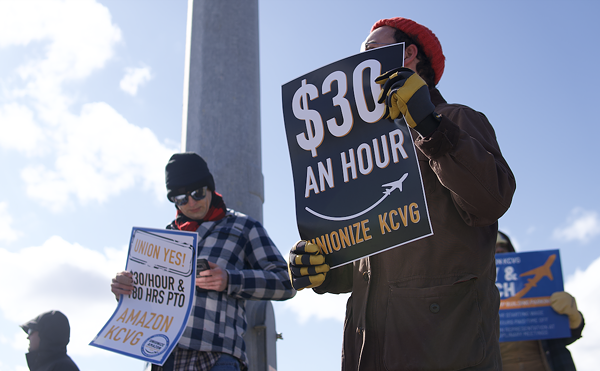|
Most of the neighbors in East Walnut Hills liked Smitty, the teen entrepreneur who washed cars in his mentor's driveway to make cash.
Some neighbors were uncomfortable, according to Scott Seidewitz, Smitty's mentor. The neighbors, like Seidewitz, were mostly white; Smitty is African-American. After a series of burglaries in the neighborhood, some residents confronted Seidewitz, accusing his protégé.
During one car wash, a police officer patrolling the neighborhood stopped Smitty as he was driving a client's car into Seidewitz's driveway. The officer asked Smitty his reason for being in the neighborhood, Seidewitz says.
When Smitty answered, Seidewitz says, the officer told him, "Get out of here!"
Smitty, now 21, has lost all respect for the Cincinnati Police, Seidewitz says.
That story, heard at the Jan. 28 meeting of the Free Inquiry Group, shows one perspective on racial profiling by police. Inez Klein's story gives another.
Klein, who works for Bernens Medical Equipment, enrolled in the six-week Citizens Police Academy to see first-hand the dilemmas police officers encounter. Firearms training allowed her to experience the mentality of an officer making split-second decisions.
But perhaps equally telling was an eight-hour shift listening to calls at the 911 operations center.
"Most were drunks, mentally ill or someone bumped their cell phone that was programmed with 911," Klein said. "There were about 100 calls that night."
Klein accompanied an officer responding to various calls on a Saturday night. One call involved a peeping Tom in Clifton. Another involved a 25-year-old man caught having sex with a 14-year-old girl. At a bar, a man was hit in the head with a bat.
"They [the police officers] acted as a family to catch whomever beat this man," Klein said.
Klein was candid about what she saw and heard in the police academy, including the foulest use of language, an angry mother confronting her daughter at a police station and deciding whether or not to use a weapon.
A board member of the Free Inquiry Group (FIG), Klein suggested citizens enroll in the Citizens Police Academy to get a better understanding of police officers' jobs.
"We all profile whether we like it or not," she said.
'This scares me'
FIG is a non-profit secular humanist organization that meets monthly. The Jan. 28 meeting at the Vernon Manor Hotel attracted a mostly white audience to talk about conflict between Cincinnati Police and African Americans.
FIG invited Leslie Blade to discuss her article Piling On (see issue of Oct. 3-9, 2002), an investigation into the death of Roger Owensby Jr. in Cincinnati Police custody. Like Klein, Blade promoted the value of average citizens asking hard questions. A contributing writer for CityBeat, Blade is an adjunct professor of design at the University of Cincinnati.
"I do this as a novice," she said. "This is what I uncovered — and that scares me. There are mundane details about the law that people just do not understand. The (police) department has a fraternity mentality."
One way to make public officials be accountable is to make communication media accountable, according to City Councilwoman Minette Cooper. She told FIG that citizens must be demanding.
"Ask questions of your newspapers," she said. "Some of these people do not have to be voted in."
Seidewitz, a candidate in the 1999 city council election, moderated the discussion. When he was a Procter and Gamble brand manager, Seidewitz said, some of his constituents — professional, well-compensated African Americans — were frequently being accosted by police officers.
"People of all colors need to speak out on race," he said. ©





